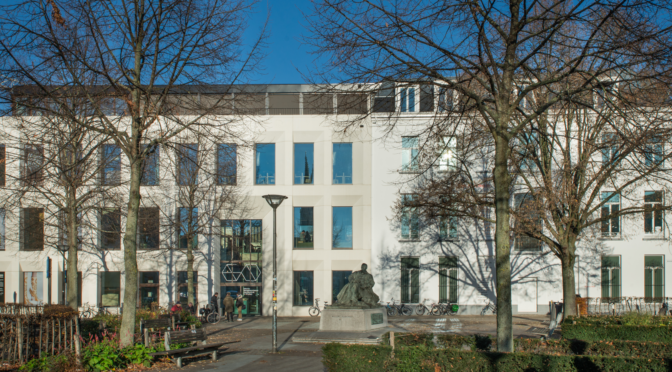Charles Ragin’s new book Analytic Induction is now available. It is open access, so you may read it for free via UC Press and JStor. You may also purchase a print copy or download it for your Kindle at Amazon.
All posts by cjr
11th Annual International QCA Workshops
The 11th Annual International QCA Workshops will be held 12-14 December 2023 in Belgium. The International QCA Paper Development Workshop will be held on 12-13 December, followed by the International QCA Experts Workshop.
Organizers: Bart Cambré, University of Antwerp (bart.cambre@ams.ac.be) and Benoît Rihoux, UCLouvaine (benoit.rihoux@uclouvain.be)
COMPASSS Newsletter #50 (June 2023)
COMPASSS Newsletter #50 is now available on the newsletter page at https://compasss.org/newsletter/ [direct link].
Many thanks to our intern, Nolan Witty, for putting the newsletter together and all of the contributors from across the COMPASSS community.
CfA: 3rd Annual QCA Conference of the Americas
The 3rd Annual QCA Conference of the Americas (AQCA2024) will be held on March 20-22, 2024 at Northwestern University (Chicago, Illinois, USA). The call for abstracts is now open with submissions due on November 1, 2023. Please find complete details and updates on the conference website at https://compasss.org/aqca.
3rd Annual QCA Conference of the Americas at Northwestern University
The 3rd Annual QCA Conference of the Americas (AQCA2024) will be held on March 20-22, 2024 at Northwestern University (Chicago, Illinois, USA). The call for abstracts is now open with submissions due on November 1, 2023. Please find complete details and updates on the conference website at https://compasss.org/aqca.
CfP: Hawaii International Conference on System Sciences (HICSS)
József Mezei (Åbo Akademi University) and Shahrokh Nikou (Åbo Akademi University and Stockholm University) are organizing a QCA minitrack for HICSS (Jan 3-6, 2024). Submissions are due by June 15, 2023. Please see the call for papers for details.
Set Theory, Constructivism, and Science: A Symposium on James Mahoney’s The Logic of Social Science: Thursday, May 25, 2023
In this hybrid symposium, a panel of scholars discuss James Mahoney’s recent book, The Logic of Social Science. The book develops a scientific constructivist approach that uses set-theoretic analysis to avoid essentialist biases in the production of knowledge. This scientific constructivist approach recognizes that social categories depend on collective understandings for their existence, but it insists that this recognition need not hinder the use of explicit procedures for the rational assessment of truth. Mahoney argues that set-theoretic analysis enables scholars to avoid the pitfalls of essentialism and produce findings that rest on a firm scientific foundation.
All speakers will participate online; you are invited to attend online or in person at Central European University, where the symposium will be followed by a wine and cheese reception.
Report on Time, Process and QCA
In Fall of 2022, Lasse Gerrits and Sofia Pagliarin, both of the Institute for Housing and Urban Development Studies, Erasmus University Rotterdam, organized the first Time-in-QCA (TiQ) workshop. They have now produced a corresponding report of the workshop. More than just reviewing the workshop itself, this report is essential reading for anybody interested in longitudinal QCA: it summarizes existing conceptualizations of the relationships among time and QCA, provides a high-level overview of methodological techniques for incorporating time and process into QCA, and identifies avenues and areas for future exploration.
Report of the first ‘Time-in-QCA’ (TiQ) International Workshop
“A Vocabulary for QCA”
Roel Rutten (Tilburg University) and Claude Rubinson (University of Houston-Downtown) have produced a QCA glossary, available on the Tutorials and Guides page of the COMPASSS website.
New Working Paper by Lauri and Saar
“Intergenerational Transmission of Education: Set-Theoretic Exploration of Accumulation of Social Advantages and Disadvantages in Six European Countries” by Triin Lauri (Tallinn University) and Ellu Saar (Tallinn University).
The aim of the paper is to investigate the patterns of multiple advantages and disadvantages of parental resources measured by educational attainment of both parents as well as parental cultural resources and their impact on the educational attainment of offspring across three cohorts in six European countries – the Czech Republic, Estonia, Germany, Italy, Sweden, and the United Kingdom. We separate the examination of combined advantages from that of combined disadvantages to emphasise the asymmetries in these relationships by employing a novel configurational approach, set coincidence analysis introduced by Ragin and Fiss (2017). The analysis based on the International Assessment of Adult Competencies data (PIAAC) revealed substantial country differences in degrees of cumulative advantages and disadvantages of respondents’ parental resources and also in the linkages between these cumulative patterns and respondents’ educational attainment.


